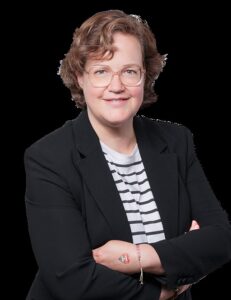The power of mentoring:
A Multi-Perspective Approach on quality assessment in Academia 
Mentoring programs play a crucial role in shaping academic and professional trajectories, yet their impact and effectiveness are often difficult to assess. The objectives of mentoring programs in academia are shaped by a complex interplay of equity-driven approaches as well as the logics of the entrepreneurial university. Nina Steinweg will adress on these challenges by sharing recent findings from the project STARQ.
The participants will then explore methods for assessing the quality of mentoring programs, discuss best practices, and critically reflect on their long-term influence on individual careers and institutional structures. By combining research insights with practical experience, this session aims to foster a deeper understanding of mentoring’s transformative potential while ensuring its effectiveness through quality assessment.
Nina Steinweg studied Law in Bonn, Heidelberg and Montpellier and graduated in Germany and France. She holds a doctoral degree from the University of Heidelberg. Nina Steinweg coordinated the Cornelia Harte Mentoring in her role as an assistant to the Gender Equality Officer at the University of Cologne from 2004-2008. Since 2008 Nina is a senior researcher at the Center of Excellence Women and Science at GESIS, leading research projects, consulting Higher Education Institutions and developing scientific services. Her focus lies on the legal aspects and the quality assurance of gender equality, diversity and anti-discrimination policies and measures in Academia. She is a member of the Scientific Advisory Board of the Women’s and Gender Research Network NRW since 2014. From 2019-2023 she lead the BMBF funded project StaRQ (Standards, Guidelines and Quality Assurance for Measures for Gender Equality in Academia) with a special focus on mentoring programmes. She conducted evaluations of gender equality measures at the Faculty of Engineering at the Friedrich-Alexander-University Erlangen-Nuremberg (2020- 2022) and at the Georg-August-Universität Göttingen (2016-2017).